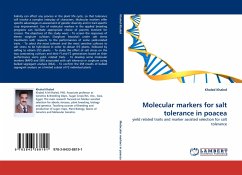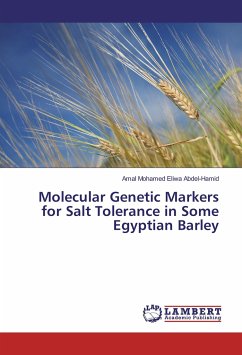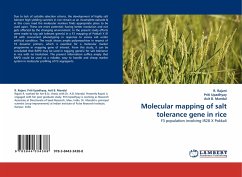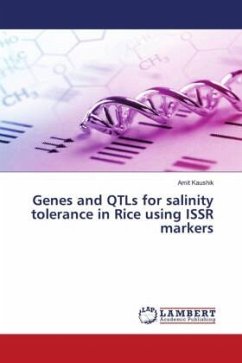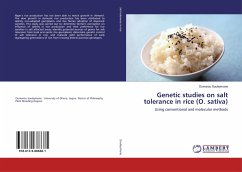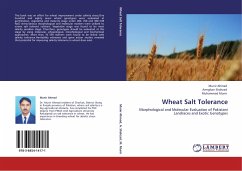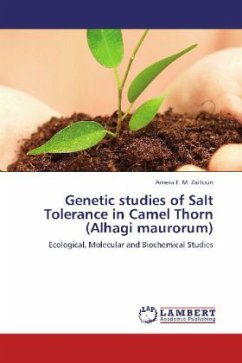Salinity can affect any process in the plant life cycle, so that tolerance will involve a complex interplay of characters. Molecular markers offer specific advantages in assessment of genetic diversity and in trait-specific crop improvement. Use of molecular markers in the applied breeding programs can facilitate appropriate choice of parents involved for crosses. The objectives of this study were: - To screen the responses of eleven sorghum cultivars (Sorghum biocolor) under salt stress treatments with respects to the performances of some yield-related traits. - To select the most tolerant and the most sensitive cultivars to salt stress to be hybridized in order to obtain (Fl) plants, followed by selfing to obtain (F2) plants. - To study the effect of salt stress on the two contrasting cultivars and their Fl and F2 generations based on their performance some yield- related traits. - To develop some molecular markers (RAPD and SSR) associated with salt tolerance in sorghum using bulked segregant analysis (BSA). - To confirm the SSR results of bulked segregant analysis on a limited subset of F2 individual plants

